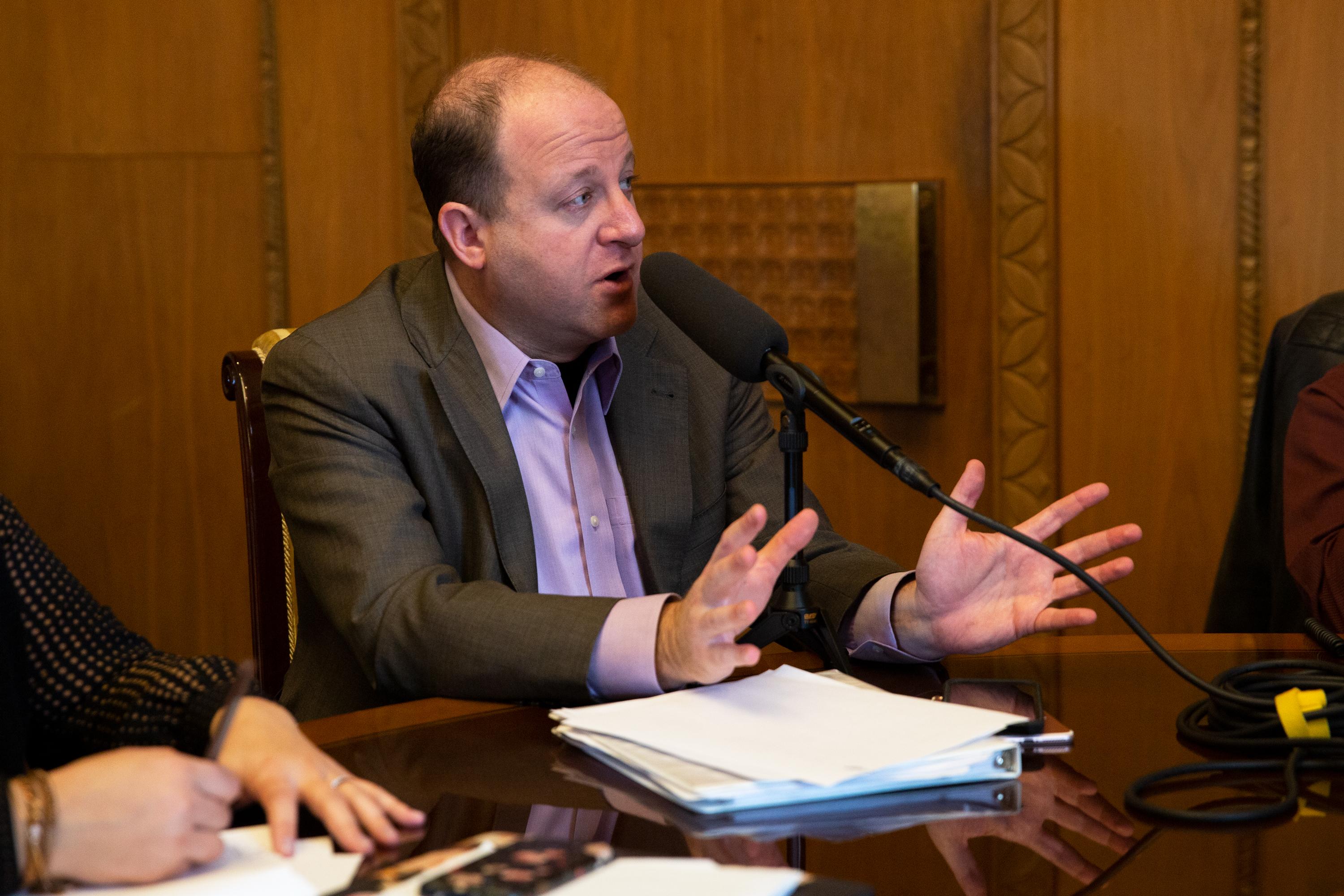
Colorado Gov. Jared Polis formally presented his budget to the legislature’s joint budget committee on Wednesday. It's the starting point for negotiations for the actual budget that state lawmakers will draft and pass next year.
Polis asked for more money for transportation and a paid family leave program for state employees. He also wants to boost Colorado’s reserves to prepare for the next recession.
And in the wake of Proposition CC failing at the ballot box earlier this month, he told CPR News that he hopes to find new ways to improve Colorado’s infrastructure challenges and show voters the state can do more with the existing money it has.
“It’s not uncommon that voters always like to have their cake and eat it too. Right?” Polis said of the measure failing. “They want their roads fixed, but they don't want to pay for it. That's very normal. They want funding for schools, don't want to pay for it. It's all up to the voters in this state. The voters have turned down three different ways of doing it.”
Colorado’s Taxpayers Bill of Rights, passed in the early nineties, requires voters to approve tax increases. Proposition CC would have allowed the state to keep the tax money it collects and would have eliminated tax refunds under TABOR. Polis says with no new funding in the near future, the state may need to look more closely at public private partnerships to try and ease things like traffic congestion.
“Which are of course, from my perspective, the last place you go, they're the least desirable way to build infrastructure,” Polis said, citing higher financing costs.
And while the state’s economy remains strong, Polis said he’s very focused on planning for when it won’t be.
“It's inevitable that there will be a time with slower economic growth or even negative economic growth," Polis said. "And what we want to do is increase the size of the state reserve, increase the state education fund, which back fills schools during tough economic times and repay some of the onetime mechanisms that were used in the last recession to free up money in the state budget."
This is Polis’ first state budget since taking office. He is continuing his push from the last legislative session to expand early childhood education. The state’s general fund would increase 2.9 percent under his proposal to $13.8 billion. While there will certainly be disagreements and changes to his plan, it’s receiving a relatively positive reception so far from members in both parties.
Passing a balanced budget is the only thing state lawmakers are constitutionally required to do during their annual legislative session and it’s by and large a bipartisan process.









